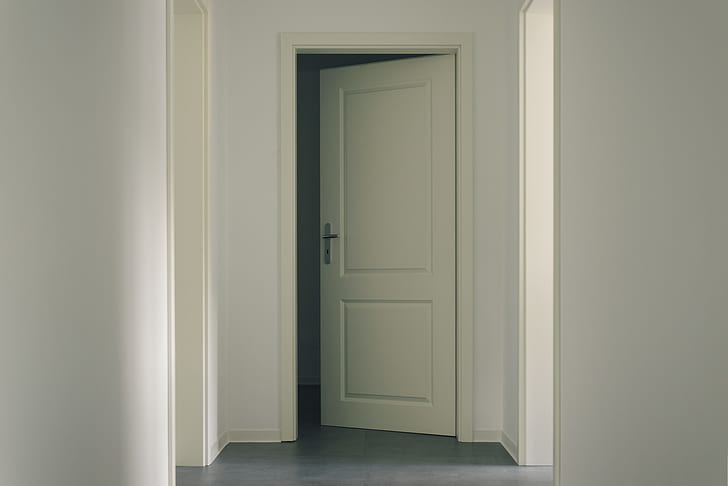Choosing the right interior doors is an important aspect of house improvements. Not only do they add an attractive finish to your house, but the doors also serve a purpose, providing a private space and controlling the noise. This article guides you on what to look out for when selecting the perfect interior doors.
1. Material
The most important material to consider when an interior door is to be used is the material used in making it. Common materials used include:
- Solid Wood: Solid Wood, presenting a classic look and strongness, there is excellent sound insulation; however, the cost might be higher.
- Hollow Core: Made of fiberboard or composite materials, lighter and less expensive but lowers the quality of the sound insulation.
- Solid Core: Filled with wood fiber mix. More cost than solid wood but more noise than hollow core doors.
- Glass: Great for offices and dining rooms when some natural light flow is required. They can be frosted also for privacy.
- Metal: Often seen in modern or industrial-design homes, metal doors create a sleek, contemporary appearance and are strong and resistant to fire.
2. Style
There are many types of interior doors, so your choice should reflect the overall design aesthetic of your home. Some popular styles are:
- Panel Doors: Raised or recessed panels and are the most common. They can have one to six panels and work well in traditional and modern settings.
- French Doors: Glass panes that allow light penetration. These doors are suitable for connecting two spaces without total separation.
- Bifold Doors: Hinge design folds together allowing for opening up, quite feasible for closets and small rooms where a full-swing door is a no-no.
- Sliding Doors: They slide on a track are perfect for closets, bathrooms, etc., when a swinging door is not an option.
- Barn Doors: Mounted on a track slide to open providing a rustic look while saving floor space.
3. Size and Fit
Measuring the door opening is very essential before buying the door. The door width, height, and thickness are what one should put into consideration. Standard sizes for doors measure 30 inches wide by 80 inches high. The door size can be made custom based on the space available. The swing of the door should either be to the left or right in accordance with the arrangement of the room so as not to block it.
4. Finish and Color
Its finish is what gives your interior door a finishing touch, making it look so differently desirable and durable. Ensure that you get a finish that complements your home's style. The finishes may be as follows:
- Painted: Any shade to blend with the walls and trim.
- Stained: Displaying the wood grain, which comes in many shades.
- Primed: Prepared for painting, which gives you the flexibility of using a color of your choice.
5. Hardware
Do not forget door hardware-it can make functionality shine and so can aesthetics. You'll want to look at the type of hinges, doorknobs or handles, and locks that fit your style. Some of the most popular finishes for hardware are brushed nickel, chrome, bronze, and black. The hardware should go with the overall look of the door and your home's décor.
6. Soundproofing
If you want to reduce the noise between the rooms, then consider the door's soundproofing features. Solid wood and solid core doors are sound insulators than hollow core doors. Additionally, consider doors that have a high STC rating since it measures how effectively a door reduces sound transmission.
7. Cost
The prices of interior doors vary a lot according to the material, style, and finish. Determine the budget beforehand and look for options available in the desired budget. It might be tempting to settle for the cheap one, but investing in quality doors shall make the additions to the overall value of your home and ensure durability and functionality.
A very critical balance to be achieved in the selection of the right interior doors is style, function, and budget. Therefore, it is possible to have doors that perfectly fit your home needs by considering material, style, size, finish, hardware, soundproofing, and cost. Take your time going through various options, and it is advisable to seek professionals if need be to ensure proper selection. An interior door well chosen does not only serve a practical purpose but also enhances the beauty and ambiance of your home.
In fact, an interior door is determined based on consideration of what the door would serve in one's house. For example, in cases where there is a need for natural light, a glass panel door would be perfect for an office or a kitchen, while its placement in a bedroom may not be suitable.

